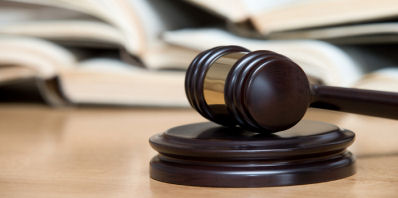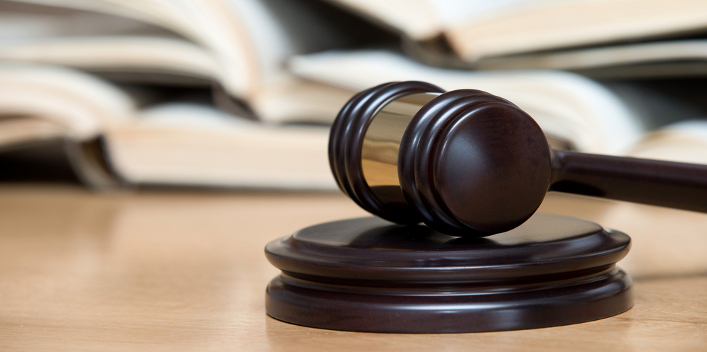760.745.7576
PROBATE LAW
Section 1 - Duties Of Personal Representative
In general, the duties of the personal representative are to collect and conserve, and manage and control the assets of the estate, pay the debts of the decedent, pay all taxes due from the decedent and the estate, and distribute the balance of the estate according to the will or, if there is no will, in accordance with the laws of intestate succession. The law expects the personal representative to use care and diligence in carrying out these duties. California law also provides an orderly procedure to accomplish all these steps.
The personal representative should do the following:
To the extent possible, take possession of all of the estate's property. Joint tenancy property, life insurance proceeds, and retirement plan benefits (unless payable to the estate) are not included in the property under the jurisdiction of the probate court.
Collect all dividends, interest and other income, and deposit all such items in an interest-bearing estate bank account (or accounts) until the estate is closed.
Keep a detailed account of receipts and disbursements for the estate listing the date, source, and amount of each receipt and the date, nature of payment, and amount of each disbursement.
File all tax returns and pay all taxes.
Keep estate property adequately insured (we recommend early review of all casualty, property and liability insurance policies and of the general need for insurance).
Without consulting legal counsel in advance, THE PERSONAL REPRESENTATIVE SHOULD NOT DO ANY OF THE FOLLOWING:
Sell any property of the estate.
Give away any property of the estate.
Lease estate property.
Pay or compromise any debts or claims against the estate (including funeral bills and/or expenses of the decedent's last illness).
Sell stock, exercise subscription rights, or buy stocks or bonds for the estate.
Distribute estate property to any devisee or heir.
Loan any estate property or money to any devisee or heir.
Allow anyone to reside in any estate real property without payment of fair rental value (unless said person has a written lease which pre-exists the Decedent's death).
Allow anyone to use any estate personal property (such as driving the Decedent's automobile). Deposit estate funds in your personal account or otherwise commingle estate property with your own.
Act without the concurrence of the other personal representative(s) if two or more have been appointed by the probate Court.
In general, the duties of the personal representative are to collect and conserve, and manage and control the assets of the estate, pay the debts of the decedent, pay all taxes due from the decedent and the estate, and distribute the balance of the estate according to the will or, if there is no will, in accordance with the laws of intestate succession. The law expects the personal representative to use care and diligence in carrying out these duties. California law also provides an orderly procedure to accomplish all these steps.
The personal representative should do the following:
To the extent possible, take possession of all of the estate's property. Joint tenancy property, life insurance proceeds, and retirement plan benefits (unless payable to the estate) are not included in the property under the jurisdiction of the probate court.
Collect all dividends, interest and other income, and deposit all such items in an interest-bearing estate bank account (or accounts) until the estate is closed.
Keep a detailed account of receipts and disbursements for the estate listing the date, source, and amount of each receipt and the date, nature of payment, and amount of each disbursement.
File all tax returns and pay all taxes.
Keep estate property adequately insured (we recommend early review of all casualty, property and liability insurance policies and of the general need for insurance).
Without consulting legal counsel in advance, THE PERSONAL REPRESENTATIVE SHOULD NOT DO ANY OF THE FOLLOWING:
Sell any property of the estate.
Give away any property of the estate.
Lease estate property.
Pay or compromise any debts or claims against the estate (including funeral bills and/or expenses of the decedent's last illness).
Sell stock, exercise subscription rights, or buy stocks or bonds for the estate.
Distribute estate property to any devisee or heir.
Loan any estate property or money to any devisee or heir.
Allow anyone to reside in any estate real property without payment of fair rental value (unless said person has a written lease which pre-exists the Decedent's death).
Allow anyone to use any estate personal property (such as driving the Decedent's automobile). Deposit estate funds in your personal account or otherwise commingle estate property with your own.
Act without the concurrence of the other personal representative(s) if two or more have been appointed by the probate Court.

The information you obtain at this site is not, nor is it intended to be, legal advice. You should consult an attorney for individual advice regarding your own situation.
Copyright 2018 © by Jacqueline M. Skay. All rights reserved. You may reproduce materials available at this site for your own personal use and for non-commercial distribution. All copies must include this copyright statement.
Copyright 2018 © by Jacqueline M. Skay. All rights reserved. You may reproduce materials available at this site for your own personal use and for non-commercial distribution. All copies must include this copyright statement.

